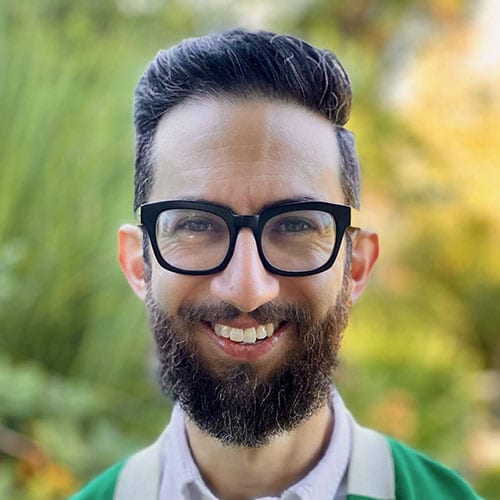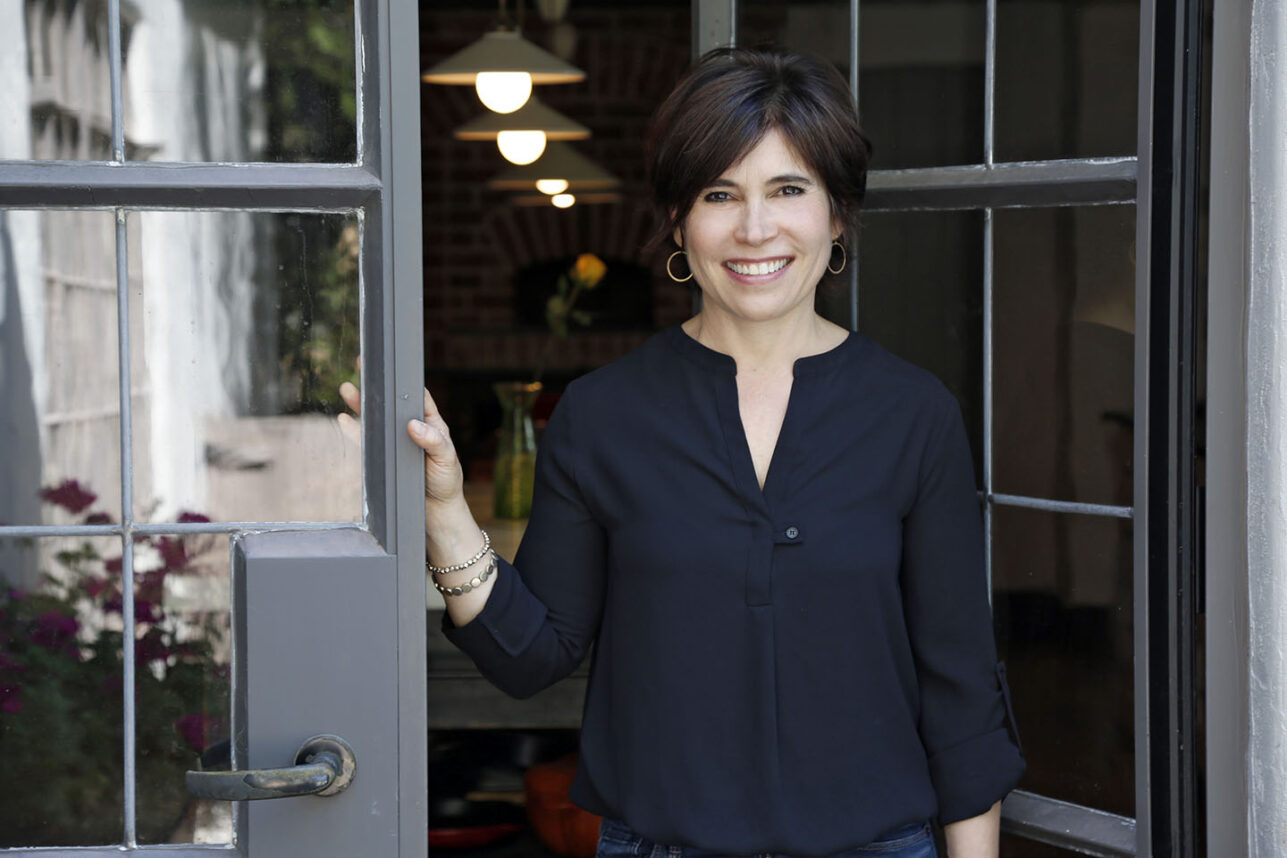
Pirkei Avot 5:21 teaches us that fifty years is equated with the ability to give counsel. Rabbi Elliot Dorff’s five decades at American Jewish University—which he celebrates this month—exemplifies this. His wisdom and counsel have served concentric circles, not only at the institution where he has taught for five decades, but also for the Conservative Movement, the American Jewish community, and the nation.
One might say Rabbi Dorff’s role as a teacher is his most profound, spanning every area of his career, and his longest standing. He recalls a moment from childhood, an instructor asking him to assist a classmate, and the sense of doing “something important both for the student and for society generally.” All the more powerful, for Rabbi Dorff, when the students are the next generation of rabbis: “I have the strong sense that I am contributing to the ongoing Jewish tradition, one to which I am deeply committed intellectually and love.” Over the years, Rabbi Dorff has taught a diverse range of courses at American Jewish University and the University of California, Los Angeles: from ethics (Theories of Ethics, Bio-ethics, Business Ethics) to law (Religious Legal Systems) to theology (Theories of Prayer, Theology of the Prayer Book, Modern Jewish Philosophy, History or Jewish Philosophy).
Rabbi Dorff has the heart of a teacher, and that heart works in tandem with his mind for ethics rooted in a foundation of Jewish wisdom—millennia of rabbinic grappling with questions of ultimacy, human dignity, and justice. He holds a Doctorate in Philosophy with a dissertation on Moral Theory, and for years, he has applied both a Jewish and modern academic framework to the fields of bioethics.
Rabbi Dorff has the heart of a teacher, and that heart works in tandem with his mind for ethics rooted in a foundation of Jewish wisdom—millennia of rabbinic grappling with questions of ultimacy, human dignity, and justice.
As a member of the Ethics Committee of Hillary Rodham Clinton’s Health Care Task Force (1993), Rabbi Dorff helped guide the formation of structure for universal health care, considering complex questions such as what might constitute adequate health care and how do we define “everyone?” His contribution to these questions comes not only from a place of practicality, but from a place of ethical responsibility, informed by his foundations in Torah and Jewish learning. Rabbi Dorff doesn’t see this dual approach as something unique to him, but rather, an aspiration for the whole American Jewish community. “We gain independence, initiative, and creativity from American individualism,” he says. “We gain social connection, mutual support, and moral sensitivity from Jewish communitarianism. As American Jews our task is to balance these parts of our identity in order to reap the benefits of both.”
In Rabbi Dorff’s eyes, our rights as Americans are best tempered with an eye towards our duties as Jews: to serve the law—with the well-being of the most vulnerable members of society as paramount. This sense of obligation guided his testimony to the President’s National Bioethics Advisory Commission on human cloning and stem cell research (1997, 1999) and his service on the National Human Resources Protections Advisory Commission (2000-2002), charged with reviewing and revising the federal guidelines for protecting human subjects in research projects. Rabbi Dorff’s contribution to these discussions is no intellectual exercise—his awareness of Nazi doctors’ detestable corruption of their profession informs his concern for the well-being of those who participate in medical studies.
Rabbi Dorff serves on the Ethics Advisory Committee for the state of California (2012-present) on stem cell research. Since 1984 he has served on the Conservative Movement’s Committee on Jewish Law and Standards—which he chairs today—for which he has written rabbinic rulings on topics including the beginning and end of life, the distribution of health care, family violence, violent and defamatory video games, providing references for schools or jobs, and modest and harmful speech. In this wide range of areas, he brings together Jewish and American values, always adapting to the times while drawing deeply on Jewish wisdom. Jewish law, he says, must be “historically authentic to the Jewish tradition as well as effective in preserving it,” to remain vibrant.
Throughout his career, Rabbi Dorff has also focused on interfaith work, viewing it as not only essential to building a more inclusive and tolerant world, but also as an aspect of self-understanding. As the Dean of the University’s rabbinical program from 1971 to 1994, he directed students to meet aspiring clergy at nearby seminaries. Rabbi Dorff would often host priests as guests at his family’s Passover seders, revealing that he would “learn more about our own perspectives on life, values, and texts by seeing them through the eyes of people who are not part of our community and whose tradition is different from ours.” Conversely, his guests were “amazed at the free-flowing, unfettered permission to question each other and the texts that we were reading,” he explains. Rabbi Dorff jokes that he would describe Judaism as “very feisty—it loves arguments, and it does so both out of a sense of humility of what we human beings can know and out of respect for the people suggesting something.”
Rabbi Elliot Dorff has written responsa on issues on all areas of the life cycle, and has published 28 books, including “To Do the Right and the Good: A Jewish Approach to Modern Social Ethics” (2002), which won the National Jewish Book Award. Any of these constitutes a contribution to the wisdom of the world we live in, but like few others, Rabbi Dorff embodies counsel—the depth and breadth of which can only be built through decade after decade of scholarship, teaching, and service.
The book of Proverbs teaches that where there is no guidance, an entire people can fall—but with abundant counsel, there can be victory (11:14). Rabbi Dorff is one of those counselors serving all of humanity, and though there is no perfect victory in the complex realms of ethics, his guidance brings the world to a state more just and more compassionate.
Evan Wolkenstein is a high school teacher and writer. He attended the University of Wisconsin in Madison, Hebrew University, and the Pardes Institute for Jewish Studies. His work can be found in The Forward, Tablet Magazine, The Washington Post, Engadget, My Jewish Learning, and BimBam. He lives with his wife and daughters in the San Francisco Bay Area. Turtle Boy is his first novel and winner of the 2021 Sydney Taylor Book Award.
























 More news and opinions than at a Shabbat dinner, right in your inbox.
More news and opinions than at a Shabbat dinner, right in your inbox.